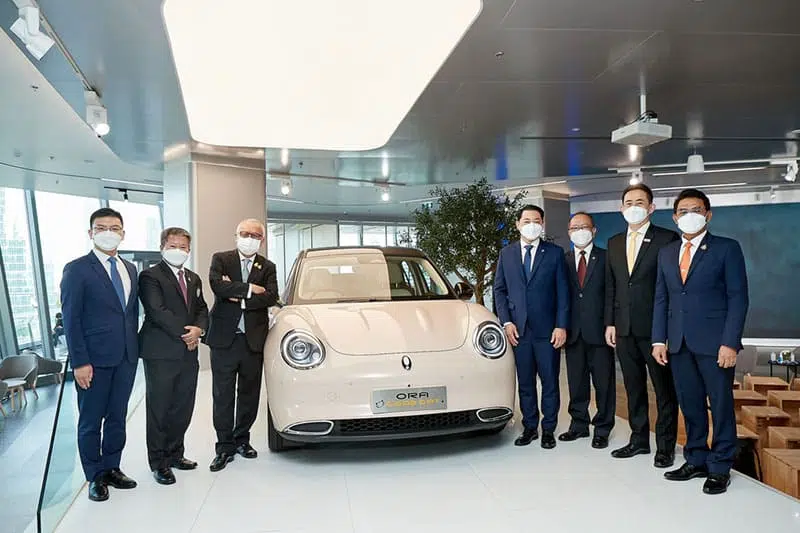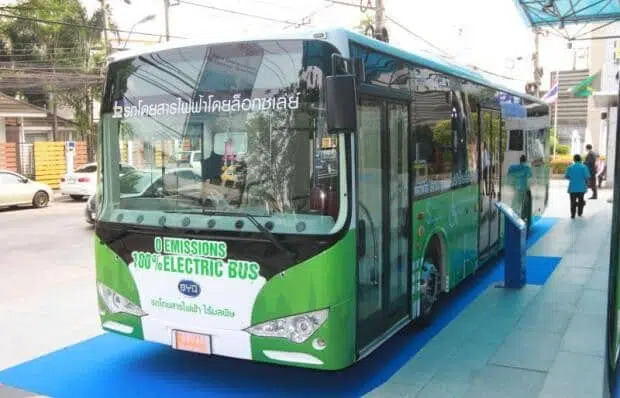It is not unusual to see EV vehicles, also known as electric vehicles, beginning to be widely used in Thailand. Many sectors have begun to support the industry, and the EV consumer base is starting to grow. Thailand seems to be ahead of the EV adoption curve in ASEAN, even though the use of EVs has begun to catch on in many countries. In this article, we will discuss the readiness of Thailand to make their major step into the era of electric vehicles. The main issues to be discussed will be the aspects where Thailand is reasonably ready, and the aspects that we still need to change and enhance, to be ready to fully step into this future automotive world.

EV Readiness in Thailand
We’ll cover price factors and options, charging stations, government-sponsored policies. and the popularity of using EV vehicles in Thailand at present.
In terms of price and options, Thailand is still in the early stages for the use of electric vehicles. Due to this, the price of EV vehicles are generally higher than that of internal combustion engine (ICE) vehicles. Furthermore, the variety of EV offerings by manufacturers remain limited, though 2022 has proven to be a promising year with many new and exciting EV car launches.
Thailand as a country that mainly produces automobile components, may have to adjust accordingly by transitioning to the EV industry more quickly. This will enable production of EVs to be made domestically, resulting in consumers being able to buy EVs at a lower price, more stability, and more options.
The second is the low number of charging stations available, including the long charging time, compared to the distance travelled each time after charging. Also, currently many residential areas lack the correct charging infrastructures for EV charging at homes. There are many charging stations available in Bangkok, but the same cannot be said about smaller towns and cities outside of Bangkok. This causes range anxiety for Electric Vehicle owners. Previously, there were few industries to support the EV , such as the manufacture of chargers that can be installed in the home. Maintenance of charging systems, etc. However, the good news is that many sectors have entered the market to solve this problem. As for PTT, it plans to manage 350 charging stations in the future, which is a number that is appropriate for the growth in EV consumers.
The third is the state policy that supports the use of EV vehicles. Most recently, the Excise Department has reduced vehicle and import taxes for Electric Vehicles. Thailand’s government aims for EVs to comprise 30% of the nation’s overall car production output, or seven hundred and fifty thousand vehicles, from all types of vehicles, by 2030. To attract buyers, they’re currently offering a special package for the next two years, featuring tax cuts and subsidies ranging from 70,000 to 150,000 baht., as well as encouraging consumers to register their electric vehicles as (ZEV: Zero-Emissions Vehicles) from 2035.
Lastly, is the prevalence of using EVs, especially for transportation. At present, the BMTA, the main transportation system in Bangkok, has changed all its 3,000 buses from NGV to electric vehicles, making the public transport network use less than a hundred and twenty million less litres of diesel in a year, helping to reduce air emissions as well.

Summary
Summing up, Thailand has both the availability of resources and great potential to welcome these new generation of vehicles. Although there are some factors that still need to be corrected and improved, the government is on the right track. Government policies should include the private sector’s interest in helping consumers. Both are important indicators that Thailand is ready to step into this new mobility era.


